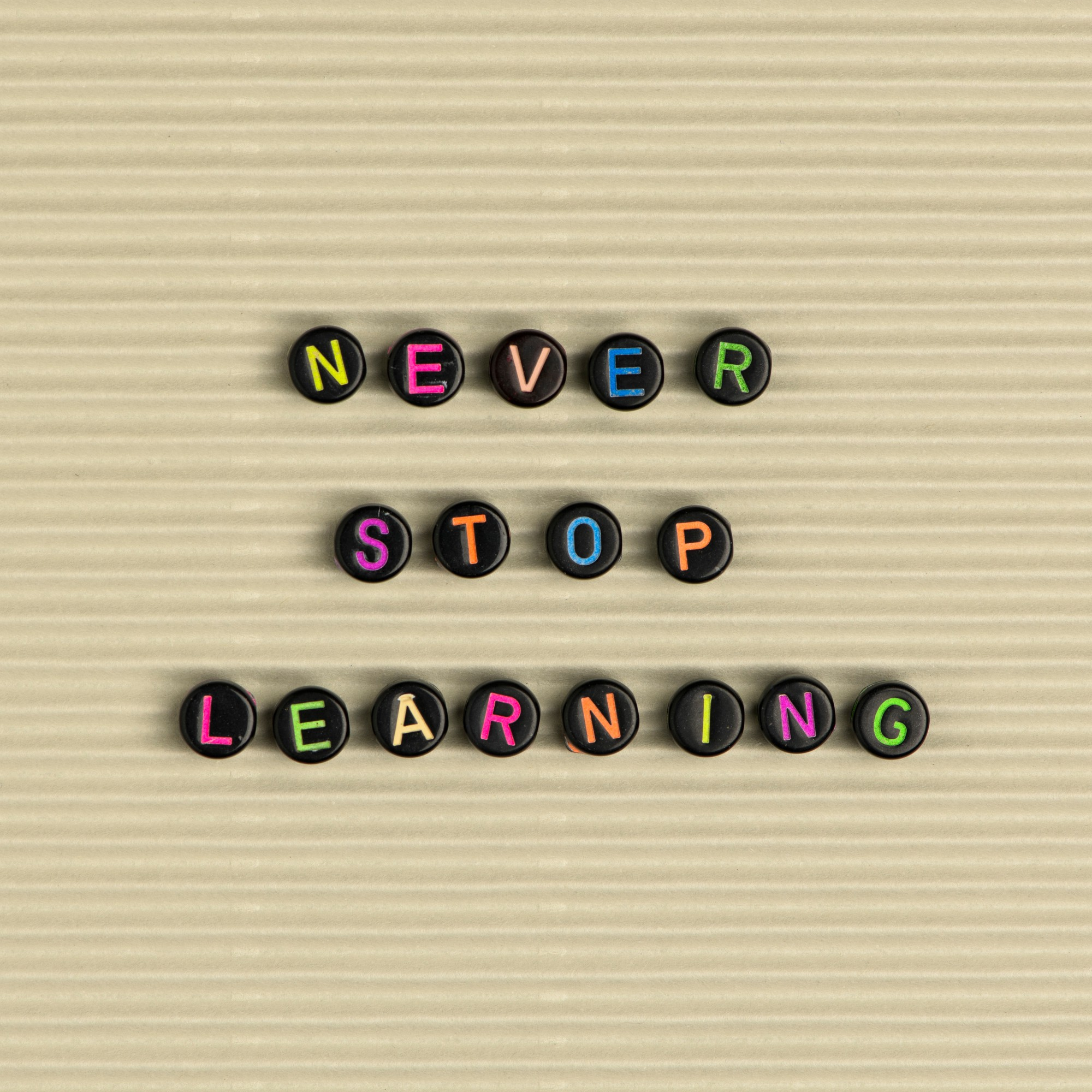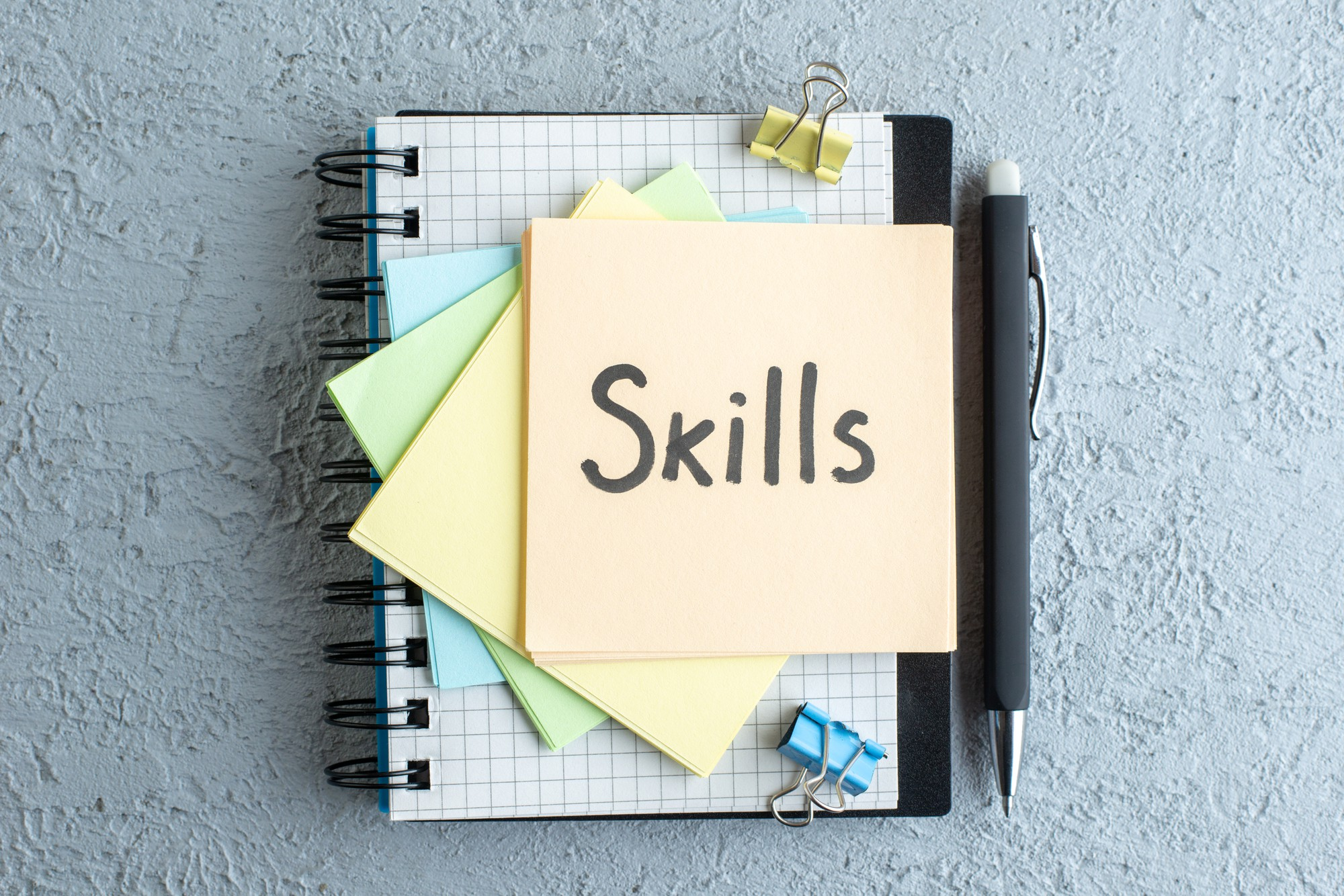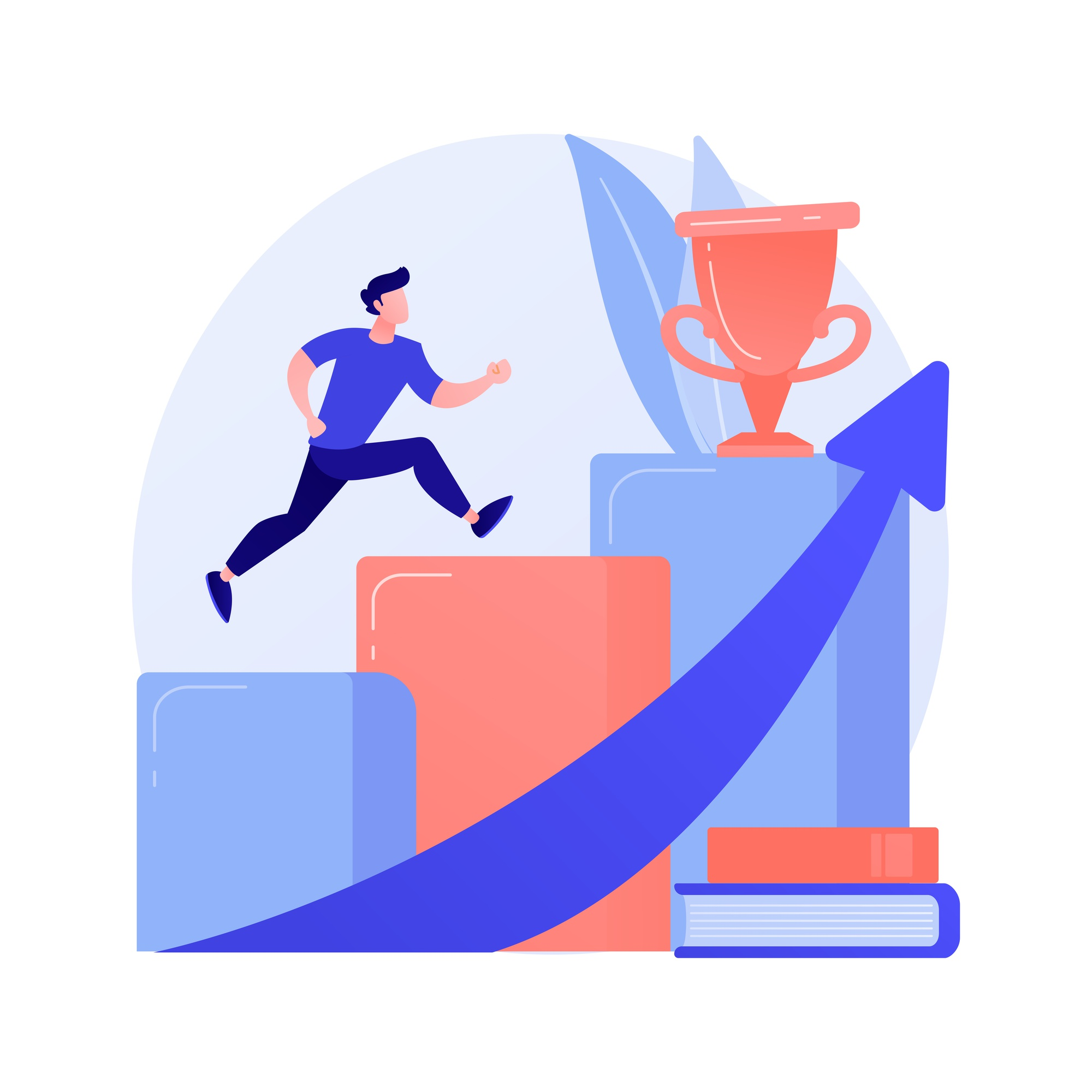Lifelong learning is the key to unlocking personal and professional development. In today’s rapidly evolving world, staying stagnant is not an option.
The ability to adapt to new tasks, acquire new skills, and enhance existing ones is essential for success.
Whether it’s through online courses, training programs, or self-study, lifelong learning offers unlimited opportunities to expand knowledge and expertise.
In this article, we will explore the benefits of lifelong learning, methods to incorporate it into daily life, and strategies to overcome challenges while maintaining motivation.

What Is Lifelong Learning?
Lifelong learning is all about embracing the joy of learning throughout your entire life, beyond the boundaries of formal education. It’s a mindset that says, “I want to keep growing, discovering, and expanding my knowledge and skills, no matter my age or stage in life.”
Lifelong learning is a passport to personal and professional development, allowing you to explore new interests, stay curious, adapt to a changing world, and find fulfillment in lifelong learning. So, keep that thirst for knowledge alive and never stop exploring the fascinating journey of lifelong learning!
Benefits of Lifelong Learning
Lifelong learning brings forth a multitude of benefits that extend beyond personal and professional development.
By embracing a mindset of lifelong learning, individuals open themselves up to a world of opportunities and transformation.
By exploring the benefits, we will uncover the power and impact that lifelong learning can have on shaping our lives and unlocking our true potential.
Acquisition of New Skills
Lifelong learning provides an avenue to acquire new skills that are in high demand. It encompasses both hard and soft skills, which are essential in today’s competitive job market.
Soft skills such as communication, and leadership enhance interpersonal relationships and foster teamwork. On the other hand, hard skills like computer programming, digital marketing, and graphic design are specific expertise that open doors to new career opportunities.

Adaptability to Change
In today’s fast-paced world, adaptability is crucial. Lifelong learning equips individuals with the ability to embrace and navigate change effectively.
By staying informed about emerging technologies, evolving industries, and shifting market demands, lifelong learners can adapt their skill sets and remain relevant in a rapidly changing environment.
Personal Well-being
Lifelong learning contributes to personal well-being and a higher quality of life. Engaging in intellectual stimulation and pursuing personal interests through learning can increase happiness, satisfaction, and overall mental well-being.
Lifelong learners often experience a sense of purpose, engagement, and a greater sense of fulfillment in their lives.
Personal Growth and Self-Improvement
Lifelong learning goes beyond professional goals; it contributes to personal growth and self-improvement. Learning a new language or acquiring problem-solving techniques broadens horizons and fosters a deeper understanding of diverse cultures.
Developing time management and leadership improves efficiency and effectiveness in various aspects of life. Lifelong learning allows individuals to gain insight and stay updated in various fields, making them well-rounded individuals with a thirst for knowledge.
Professional Development and Career Growth
Lifelong learning is vital for career development and growth. By expanding one’s skill set, individuals become more versatile and increase their chances of securing desirable positions. Employers value professionals willing to adapt and learn new technologies or methodologies.
Lifelong learning also enhances career prospects, as demonstrated by an updated LinkedIn profile that showcases acquired skillfulness and accomplishments.
Furthermore, continuous learners create new opportunities in the job market by demonstrating their commitment to growth and development.
4 Ways to Improve Professional Development
Professional or career development plays a crucial role in advancing one’s career, expanding skill sets, and staying competitive in the ever-evolving job market. Here are four effective ways to improve your professional development:
Pursue Continuing Education: Engaging in lifelong learning through formal education programs, workshops, seminars, or online courses is an excellent way to improve professional development. Identify areas where you want to improve your learnings or acquire novel skills relevant to your field. Seek out opportunities to gain industry certifications, enroll in advanced degree programs, or attend specialized training sessions. By staying updated with the latest trends and developments in your field, you can position yourself as a knowledgeable and valuable professional.
Seek Mentorship and Networking: Building meaningful professional relationships and seeking guidance from experienced mentors can significantly contribute to your professional development. Identify individuals who have achieved success in your field and are willing to share their learnings and insights. Reach out to them for mentorship or seek opportunities to network at industry events, conferences, or professional associations. Mentors can provide valuable advice, help navigate career challenges, and offer insights into career progression, while networking can open doors to new opportunities and collaborations.
Take on New Challenges and Projects: Embracing new challenges and taking on additional responsibilities within your current role or seeking out diverse projects can foster professional development. Volunteer for cross-functional assignments or initiatives that allow you to learn novel skills, expand your understanding, and showcase your capabilities. By stepping outside your comfort zone, you can develop a broader skill set, demonstrate your adaptability, and increase your value within your organization.
Engage in Continuous Self-Reflection and Goal-Setting: Regular self-reflection and goal-setting are essential for professional development. Take the time to assess your strengths, weaknesses, and areas for improvement. Set specific, measurable, attainable, relevant, and time-bound (SMART) goals that align with your long-term career aspirations. Break these goals down into actionable steps and regularly evaluate your progress. This self-awareness and goal-oriented approach will help you stay focused, track your development, and make necessary adjustments along the way.
Remember, professional development is a lifelong journey that requires dedication, commitment, and a proactive mindset.
By continually seeking new learning opportunities, nurturing relationships, embracing challenges, and setting clear goals, you can continually improve your professional skills, knowledge, and overall career trajectory.
Methods of Lifelong Learning
The methods of lifelong learning encompass various approaches and avenues to continuously acquire knowledge and skills throughout one’s life. Here are some common methods of lifelong learning:
Online Courses
These courses have revolutionized the way people learn. They offer complete flexibility, allowing learners to study at their own pace and own schedule. Various free courses and paid courses are available, catering to different interests and skill levels.
Learners have unlimited access to online course materials and resources, making it convenient to revisit lessons or dive deeper into specific topics. These online platforms provide an excellent opportunity to acquire new skills or improve existing ones from the comfort of one’s own home.
Formal Education
Pursuing formal education through academic institutions, such as universities, colleges, or vocational schools, offers structured learning programs leading to degrees, diplomas, or certifications. This method involves attending classes, and lectures, and participating in coursework to gain in-depth knowledge in specific subjects.
Utilizing Resources and Support Systems
Learners can benefit from learning from instructors and experts in the field. Many platforms offer opportunities for engagement, such as live sessions or Q&A forums, where learners can clarify doubts and seek guidance.
Engaging in actual projects allows learners to apply their learnings and gain practical experience. Additionally, seeking support from online communities and forums fosters a sense of belonging and provides a platform for collaborative learning.
Workshops and Training Programs
They provide hands-on learning experiences focused on specific skills or topics. These short-term programs, often conducted by industry professionals or experts, offer practical knowledge, demonstrations, and interactive exercises. They are particularly beneficial for acquiring technical skills or specialized knowledge.
Reading and Self-Study
Lifelong learners often engage in self-study through reading books, journals, articles, and other relevant publications. This method allows interested individuals to explore diverse subjects, expand their knowledge base, and stay informed about current trends and developments in their fields of interest.
Mentoring and Coaching
Seeking guidance and mentorship from experienced professionals is an invaluable method of lifelong learning. Mentors provide insights, advice, and support based on their own experiences, helping individuals develop skills, navigate challenges, and identify growth opportunities in their careers.
Informal Learning
Informal learning occurs through everyday experiences, interactions, and observations. It involves learning from colleagues, networking events, attending industry conferences, participating in communities of practice, and engaging in discussions with peers.
Informal learning allows individuals to broaden their perspectives, gain practical insights, and stay updated with industry trends.
Lifelong learning involves a combination of these methods, allowing you to customize your learning journey based on your interests, goals, and preferred learning style.
By embracing a diverse range of lifelong learning methods, you can continuously develop your knowledge, skills, and competencies throughout your lives.
Incorporating Lifelong Learning into Daily Living
To make a lifelong learning habit, it is essential to incorporate it into daily living.
Setting clear goals and tracking progress is crucial for staying motivated and focused. Identifying specific skills or areas of interest helps direct learning efforts and measure growth effectively.
Monitoring progress through tests or self-assessment provides valuable feedback and encourages improvement. Celebrating achievements and milestones along the learning journey boosts motivation and keeps learners engaged.
Integrating learning into work and personal routines is another effective way to ensure regular and consistent progress. Allocating dedicated time for learning activities demonstrates commitment and helps maintain consistency.
Leveraging downtime or commuting for learning opportunities optimizes time usage and maximizes productivity. Building habits of lifelong learning by setting aside specific times or days for learning creates a sense of routine and makes it easier to stay motivated and on track.
Overcoming Challenges and Maintaining Motivation
While lifelong learning offers numerous benefits, it also presents challenges. Time management and prioritization are crucial for balancing learning with other responsibilities.
Breaking down learning into manageable tasks helps prevent overwhelm and ensures steady progress. Developing effective study or practice routines establishes a structure that facilitates learning.
To overcome obstacles and maintain motivation, finding personal interest and relevance in learning topics is essential. Choosing subjects that align with individual passions and goals makes the learning journey more enjoyable and rewarding.
Seeking support and encouragement from peers and mentors provides a network of accountability and guidance. Celebrating small wins and acknowledging progress along the way fosters a sense of accomplishment and keeps learners motivated to continue their journey.
Conclusion
Lifelong learning is an indispensable tool for personal and professional development.
By embracing a lifelong learning mindset, individuals open doors to new opportunities, improve their skill sets, and broaden their horizons.
Whether through online courses, training programs, or self-study, adapting, acquiring novel skills, and staying updated in various fields is a game-changer in today’s rapidly changing world.
By incorporating lifelong learning into daily living, setting goals, and overcoming challenges, individuals can unlock their full potential and achieve success in both their personal and professional endeavors.
Embrace the transformative power of lifelong learning and embark on a journey of growth and self-discovery. The possibilities are limitless.

People Also Ask (FAQs)
Why is lifelong learning important for personal and professional development?
Lifelong learning is important because it allows individuals to adapt to the changing demands of the world. By acquiring new skills and knowledge, individuals can stay competitive in their careers, open up new opportunities, and improve their personal development. It enables personal and professional development by expanding one’s skill set, fostering adaptability, and increasing overall knowledge and mastery.
How can lifelong learning benefit my career development?
Lifelong learning is vital for career development as it helps individuals stay relevant and competitive in the job market. By acquiring novel skills and knowledge, you can expand your career prospects and increase your chances of landing desirable positions. Additionally, lifelong learning enhances your professional profile, making you a valuable asset to employers and opening up new avenues for career growth and advancement.
What are some methods of lifelong learning that I can pursue?
There are various methods of Lifelong learning that you can pursue, depending on your preferences and availability. E-learning programs and training programs offer flexibility and a wide range of subjects to choose from. You can also utilize resources such as books, podcasts, and online tutorials to enhance your knowledge. Engaging in workshops, attending conferences, and networking with professionals in your field are other effective methods to continue learning and stay updated.
How can I incorporate lifelong learning into my daily living?
Incorporating lifelong learning into your daily living requires setting goals, managing your time effectively, and establishing learning routines. Identify specific skills or areas of interest to focus on and allocate dedicated time for learning activities. Leverage your free time or commuting hours to engage in learning through podcasts or audiobooks. Building habits by scheduling regular learning sessions and celebrating milestones will help you integrate lifelong learning seamlessly into your daily routine.
How can lifelong learning benefit personal growth outside of my career?
Lifelong learning goes beyond career development and offers numerous benefits for personal growth. It allows you to explore new interests, develop new skills, and gain knowledge in various fields. Learning new languages, problem-solving techniques, or growing leadership skills can improve your personal living, relationships, and overall well-being. Lifelong learning fosters curiosity, a growth mindset, and a deeper understanding of the world around you, leading to a more enriching and fulfilling life.
How can free courses contribute to career growth?
Free courses offer a pathway for career growth by providing individuals with the opportunity to acquire novel skills, expand their knowledge, and stay updated in their desired field. These courses, often offered by reputable institutions and online platforms, enable learners to improve their qualifications, stay competitive in the job market, and access new career opportunities. By engaging in free courses, individuals demonstrate their motivation for professional development and gain valuable mastery sought after by employers. Additionally, free courses facilitate networking and provide a means to stay updated with industry trends, contributing to overall career growth and success.



